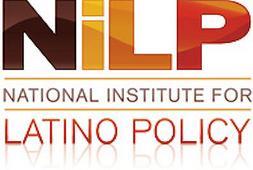

NiLP Commentary
Latinos and the Nunes Memo Controversy
By Angelo Falcón
The NiLP Report
 There's a saying in Puerto Rico: "Allá ellos que son blancos
y se entienden" (There go the Whites, who understand each other).
As a Latino, observing all the hoopla surrounding the release of the so-called
"Nunes memo" is like an out-of-body experience. While this matter
can have such profound implications for the future of American democracy,
it is concerning that for the Latino community, it is a debate entirely
outside its day-to-day reality. Even Latino members of Congress seem so
detached from these goings-on as they focus on the problems posed on immigration
and the Puerto Rico recovery. There has also been some confusion about
the most Latino-sounding name in the mix, the now notorious Congressman
Devon Nunes, who is really of Portuguese heritage.
There's a saying in Puerto Rico: "Allá ellos que son blancos
y se entienden" (There go the Whites, who understand each other).
As a Latino, observing all the hoopla surrounding the release of the so-called
"Nunes memo" is like an out-of-body experience. While this matter
can have such profound implications for the future of American democracy,
it is concerning that for the Latino community, it is a debate entirely
outside its day-to-day reality. Even Latino members of Congress seem so
detached from these goings-on as they focus on the problems posed on immigration
and the Puerto Rico recovery. There has also been some confusion about
the most Latino-sounding name in the mix, the now notorious Congressman
Devon Nunes, who is really of Portuguese heritage.
How is it possible that as President Trump attacks his Department of Justice and its FBI to delegitimize the Mueller investigation that Latino voices seem so silent on this issue? Besides not seeing Latino Congressional representatives being part of the discussion, this was also the case for the lack of Latino voices on this issue in the media (except for Spanish-language media parroting the mainstream English one). It is as if Latinos see this as a case of disturbing domestic violence among Whites that they are looking at from their apartment windows across the street. It's kind of noisy, but not really our business. Maybe we should call the cops, but wait; the cops are also part of it already!
Why are Latinos not more involved in this debate? The most obvious reason is that its origins from the Trump camp and the Right automatically excludes Latinos (except for a few Trumpeteers like Steve Cortes). On the other side, it is interesting that among the few Latino voices are the loquacious Republican Ana Navarro and outspoken conservative columnist Ruben Navarrette, Jr., besides Tom Perez who appears to respond mostly to DNC donors. Either way, it is clear how far from the centers of power, on both the left and right, Latinos currently are.
The issues at stake, however, should be of great concern to the Latino community. They range from whether this is basically laying the basis for a Trump impeachment, whether the Russians have compromised American elections, increasing cynicism about government and raising questions about the legitimacy of DOJ-FBI operations, renewing questions about the excesses of the Patriot Act and its FISA process, and the breakdown of Congressional norms of conduct. By not addressing these issues loudly, are Latino leaders reinforcing the notion that they should always just stick to only discussing specifically "Hispanic issues" and thus remain at the margins? This needs to become more and more unacceptable, and Latinos need to develop ways to be fuller participants in these larger questions that are, in essence, defining the very future of an American democracy that will affect us all.
Angelo Falcón is President of the National Institute for Latino Policy (NiLP). He can be reached at afalcon@latinopolicy.org.
